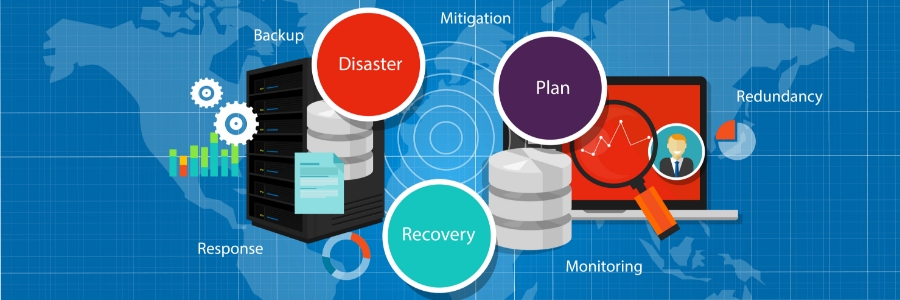As a small- or medium-sized business (SMB) owner, you understand how challenging it can be to keep your company afloat. While you may have a solid business plan, unexpected events such as natural disasters or cybersecurity threats can disrupt your operations.
Staying afloat: The importance of a business continuity plan for SMBs
Disaster recovery plan: Key steps to protect your business

As a business owner, you know that data security is paramount. It’s therefore essential to ensure you have taken all necessary steps to protect yourself against potential data loss events, such as data breaches and natural disasters. In this essential guide, we will outline the key steps you should take in creating a disaster recovery plan (DRP). Following these can save your business from an incredibly costly catastrophe.
Don’t let a power outage cripple your business — invest in a UPS

Power outages are a huge inconvenience to businesses. They can lead to lost productivity and revenue, and they can cost you a lot in damages. That's why it's important for businesses like yours to invest in an uninterrupted power supply (UPS). Let's take a closer look at some of the key reasons why every business should have a UPS system in place.
Debunking the 3 biggest myths about disaster recovery
Be prepared for disasters: Business continuity planning for SMBs

Disasters can happen to anyone, and when they do, it can be difficult for small- or medium-sized businesses (SMB) to get back on their feet. Your business could be at risk if you’re not prepared for a natural disaster or an unexpected emergency. Here are a few tips to help keep your business afloat during tough times.
How to protect your business from hurricanes

In 2021, the United States experienced one of the most active storm seasons on record, upsetting businesses already dealing with a pandemic. For companies without a good disaster recovery plan, the consequences were devastating. This is why your business should have a hurricane disaster recovery plan.
Data backup solutions your business needs

Data loss, whether caused by equipment failure, human error, natural disasters, disgruntled employees, or cyberattacks, is a major threat to your business. If you’re not prepared, losing sensitive data can bring your business to a grinding halt. Fortunately, the following backup solutions can help prevent such a scenario.
Ensuring business continuity with cloud technology
Here’s how hospitals can benefit from managed IT services

More and more healthcare organizations are turning to managed IT services providers (MSPs) for their IT needs. Outsourcing their IT functions enables hospitals and clinics to focus on being healthcare providers rather than IT professionals. Here are some of the best benefits of hiring one:
MSPs guarantee quick response times
Constant system uptime and availability can be a matter of life and death in the healthcare industry, which makes quick IT support response times crucial for any healthcare practice.
UPS: A must-have for network equipment

An uninterrupted power supply (UPS) is an essential component of a business’s IT network. It ensures that networking equipment stays operational during power outages or failures. This allows you to stay online so you don’t suffer the productivity- and profit-draining impacts of a power outage, especially one that happens without warning.



